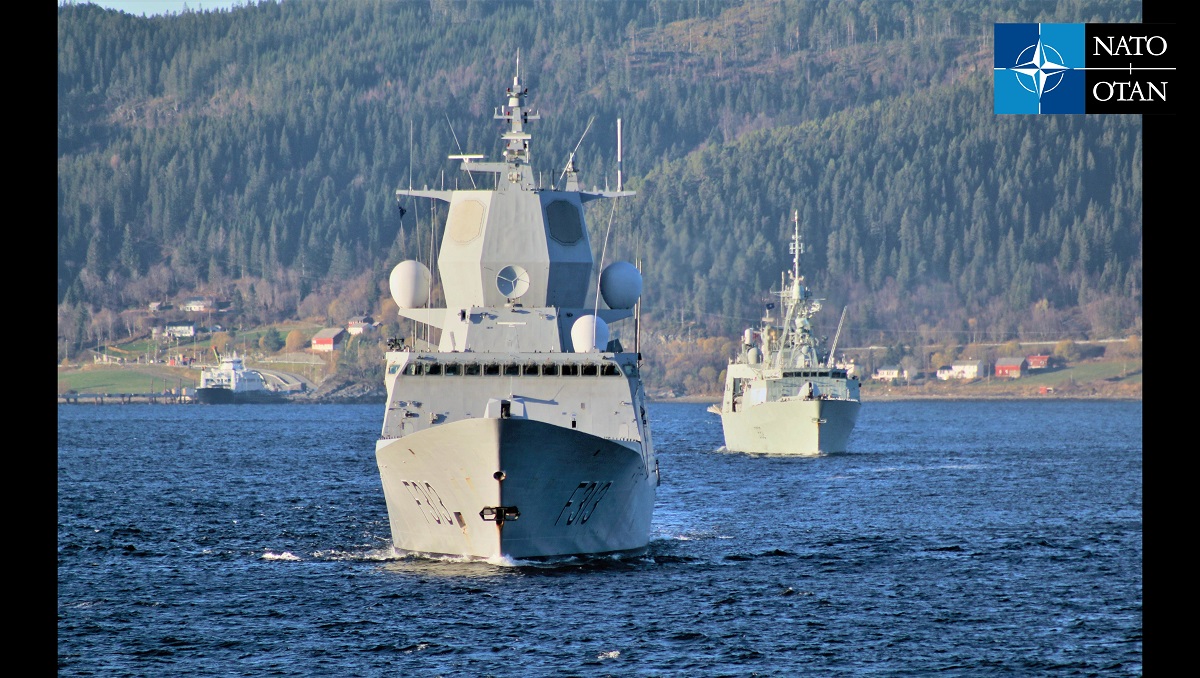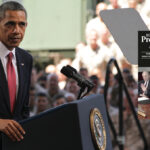
It’s time once again to feature some of the smart conversations that occur around the country through the Eisenhower Series College Program. For over 50 years, the Eisenhower Program has reached out to colleges and town halls across the nation to introduce War College students to audiences that are often unfamiliar with members of the U.S. military. This time we have two officers of NATO’s northern front in the studio, Norwegian Steinar Dahl and Canadian Eric Landry. They join podcast editor Ron Granieri to present their thoughts on the NATO alliance and their country’s contributions to the organization. The conversation focuses on interoperability, what the war in Ukraine has revealed about NATO and what the organization’s world role might be after that war has ended.
We’ve titled this “Revisited” because regular listeners might remember that in 2020 A BETTER PEACE sat down with Major General Torgeir Gråtrud, commander of the Norwegian Special Operations Command, to discuss his perspectives on strategic leadership and Norway’s role in NATO.
Because the U.S. invests so much in modernization and technology, if you outpace your allies, then you make some minor allies become irrelevant…If the U.S. comm[unication] suite is so advanced that we can’t keep up, then we can’t talk to each other. It’s not like back in the 80’s, when everybody was just on VHF.
Podcast: Download
Subscribe: Apple Podcasts | Spotify | Amazon Music | Android | Pandora | iHeartRadio | Blubrry | Podchaser | Podcast Index | TuneIn | Deezer | Youtube Music | RSS | Subscribe to A Better Peace: The War Room Podcast
Col Steinar Dahl has 30 years of service in the Norwegian Armed Forces. He has served at every level from riflemen to joint staff. He has multiple deployments to Afghanistan and Iraq and served as the Deputy Chief of Staff of Strategy Plans and Policy for the Norwegian Army before coming to the U.S. Army War College. He is a graduate of the AY23 Resident Course at the U.S. Army War College.
Col Eric Landry joined the Canadian Armed Forces in 1994 as an officer in the Armor branch. He led army personnel from a reconnaissance troop of 20 soldiers to a mechanized brigade of 4200 soldiers. He deployed on international missions to Bosnia, twice to Afghanistan, and in the Middle East. He has also conducted domestic operations from sovereignty patrols in the Arctic to flood relief in southern Quebec. He is a graduate of the AY23 Resident Course at the U.S. Army War College.
Ron Granieri is Professor of History and the Chair of the Department of National Security and Strategy at the U.S. Army War College and the Editor of A BETTER PEACE.
The views expressed in this presentation are those of the speakers and do not necessarily reflect those of the Norwegian Ministry of Defence, Canadian Department of National Defence, U.S. Army War College, U.S. Army, or Department of Defense.
Photo Description: Ships from Standing NATO Maritime Group One (SNMG1) and Two (SNMG2) sail in formation during a NATO capabilities demonstration on 29 October 2018 in the Trondheim Fjord in Norway as part of NATO exercise Trident Juncture. Norwegian frigate HNoMS Helge Ingstad (front) is part of SNMG1 and following close behind is Canadian frigate HMCS Ville de Quebec of SNMG2.
Photo Credit: LCDR Pedro Miguel Ribeiro Pinhei





1. Re: Putin’s activities in Ukraine of late, COL Dahl (at approximately to 12:00 minute point in this podcast) suggests that Putin’s strategic gamble has turned into a strategic bumble.
However, if Putin’s objective — via his bombings of Ukraine, etc., now — is simply to provide that a somewhat successful Ukrainian market-democracy state will not again be able to develop on his doorstep (and, by way of its such successful and attractive example, be able to threaten his regime), then will not Putin, by simply continuing indefinitely with his bombing (etc.) as he is today — be able to — relatively easily and relatively cheaply — achieve this much more limited and sustainable objective? From this such perspective, does not Putin “win;” this, if he can simply cause Ukraine to continue to look like it does today?
2. Re: NATO after the collapse of the USSR, LTC Landry (at approximately the 18:00 minute point in this podcast) mentions the expansion and advancement of NATO closer and closer to Putin’s doorstep; this, as what Putin perceived of as a threat post-the Old Cold War. However, based on my item no. 1 above, might not Putin have been much more concerned with the expansion and advancement of somewhat successful market-democracies more and more toward his doorstep; might not THIS be what actually threatened and worried Putin most? Note that, if such indeed is the case, then by the already successful market-democracies of Finland and Sweden joining NATO of late, this (a) does not really change anything and, thus, (b) does not worry Putin much — if at all?
Given that China is also discussed in this podcast, let us ask this question:
If Xi re: Taiwan — much like Putin re: Ukraine — decides to (a) abandon his (unbelievably costly) “invade, conquer, occupy and transform” plans and, in the place of same, (b) embrace a much more realistic and much less costly “indefinite bombing, etc.” concept — much like the one that Putin appears to be adopted re: Ukraine now,
(The goal of this much more limited — and thus much less costly — approach; this is to simply cause Taiwan and Ukraine to no longer be attractive, successful market-democracy states — attractive, successful market-democracies who, by their very existence on Xi and Putin’s doorstep, threaten their regimes.)
Then, how should NATO (and/or our Pacific forces, etc., for that matter) help to prepare Taiwan (etc.) for this such possibility?
Re: my comment immediately above, we should consider that:
Classic “resistance” stuff, this would not seem to be of as much use and/or utility (?); this, in cases in which the opponent:
a. Has no immediate intention to invade, conquer, occupy and/or transform one’s own and/or an allied or partner country. And, instead,
c. Has decided that he can achieve his political objective (destroy the attractiveness and viability of his neighboring state — so that same cannot continue to threaten his regime) via other ways and other means — for example — via “indefinite bombing,” etc.?